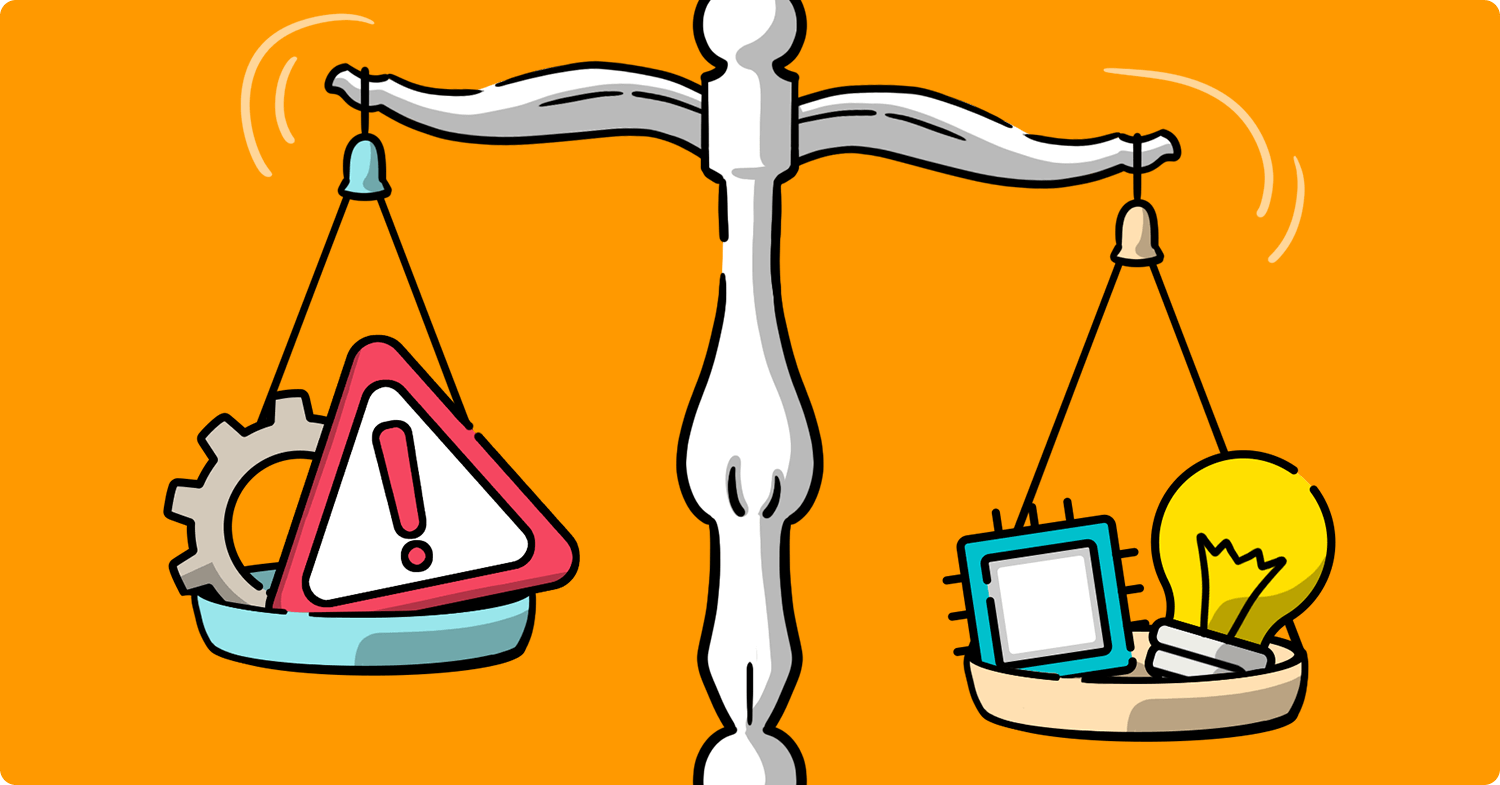AI In Therapy: Balancing Benefits With Surveillance Risks In A Police State

Table of Contents
The Promise of AI in Therapy
AI's potential to revolutionize mental healthcare is undeniable. Its benefits extend across accessibility, affordability, and the personalization of treatment, offering hope for improved mental well-being globally.
Enhanced Accessibility and Affordability
AI-powered therapy platforms have the power to overcome geographical barriers and financial constraints that currently limit access to mental healthcare.
- Reaching Underserved Populations: AI can reach remote or underserved communities, bridging the gap between those needing care and qualified professionals. Teletherapy platforms, powered by AI chatbots, can provide essential support to individuals in rural areas or conflict zones with limited access to traditional therapists.
- Cost-Effectiveness: The automation capabilities of AI can significantly reduce the cost of therapy, making it more affordable for individuals with limited financial resources. AI-driven tools can handle aspects of therapy like scheduling, initial assessments, and providing basic support, reducing the burden on human therapists.
- Examples: Numerous apps utilize AI for guided meditation, Cognitive Behavioral Therapy (CBT) exercises, and personalized mindfulness programs. These readily accessible tools offer a crucial first step for many seeking mental health support.
Personalized and Data-Driven Treatment
AI's ability to analyze vast amounts of data offers the potential for highly personalized and effective treatment plans.
- Tailored Interventions: AI algorithms can analyze patient data, including symptoms, responses to treatment, and lifestyle factors, to create customized treatment plans. This personalized approach can significantly improve treatment outcomes by addressing individual needs more effectively.
- Early Detection of Mental Health Deterioration: Predictive modeling using AI can identify patterns indicative of mental health deterioration, enabling early intervention and preventing crises. This proactive approach is crucial in managing conditions like depression and anxiety.
- Examples: AI systems are being developed to identify patterns in language and behavior indicative of suicidal ideation, allowing for timely intervention. Algorithms can also suggest tailored interventions based on a patient's unique responses to therapy.
Surveillance Risks in a Police State Context
While the potential benefits of AI in therapy are significant, the integration of this technology within a police state presents serious ethical and practical concerns. The sensitive nature of therapeutic conversations, coupled with the potential for misuse of data, creates a precarious situation.
Data Privacy and Security Concerns
The sensitive personal information shared during therapy sessions makes data extremely vulnerable to breaches and misuse, especially in systems lacking robust security protocols.
- Vulnerability to Hacking and Data Breaches: AI therapy platforms are susceptible to hacking and data breaches, potentially exposing highly sensitive personal information. This risk is amplified in environments with weak cybersecurity infrastructure.
- Government Surveillance and Exploitation: In a police state, the government could exploit data from AI therapy platforms for surveillance, political repression, or social control. This poses a direct threat to individual freedom and privacy.
- Examples: State-sponsored hacking of AI therapy platforms could lead to the exposure of individuals' political beliefs, sexual orientation, or other sensitive personal information, leading to persecution or harassment.
Manipulation and Control through AI
AI could be weaponized to manipulate individuals, reinforce propaganda, or suppress dissent, undermining the very principles of ethical therapy.
- Targeted Interventions: AI could be used to deliver targeted interventions designed to influence opinions and behaviors under the guise of therapeutic support, potentially eroding critical thinking skills and promoting conformity.
- Disinformation Campaigns: AI-driven disinformation campaigns could be disguised as therapeutic advice, subtly shaping beliefs and attitudes in ways that benefit the ruling power.
- Examples: AI systems could be used to profile and target political opponents, delivering personalized messages designed to sow discord or suppress dissent.
Erosion of Trust and Confidentiality
The fear of government surveillance can deter individuals from seeking mental health support, while the lack of trust in the therapeutic relationship can severely hinder the therapeutic process.
- Deterrent Effect: The potential for government surveillance can create a chilling effect, discouraging individuals from seeking help for fear of repercussions. This reluctance to seek support can have devastating consequences for mental health.
- Damaged Therapeutic Alliance: Concerns about data leaks can severely damage the trust necessary for a productive therapeutic relationship. Open and honest communication is crucial for effective therapy, and fear of surveillance can undermine this.
- Examples: Individuals may be hesitant to disclose sensitive information fearing state retribution, leading to incomplete or inaccurate diagnoses and ineffective treatment.
Mitigating Risks and Promoting Ethical AI in Therapy
To harness the benefits of AI in therapy while minimizing the risks, robust regulations, transparency, informed consent, and responsible AI development are paramount.
Strong Data Protection Regulations and Enforcement
Stringent data privacy laws are crucial to protect sensitive information and ensure compliance.
- Comprehensive Legislation: Data privacy laws must specifically address the unique challenges posed by AI-powered therapeutic tools. Regulations should cover data encryption, anonymization techniques, and regular security audits.
- Independent Oversight: Independent auditing and oversight mechanisms are vital to ensure adherence to data protection regulations. These mechanisms should be independent of government influence to maintain impartiality.
- Examples: Data should be encrypted both in transit and at rest. Anonymization techniques should be employed to protect patient identities. Regular security audits should be conducted to identify and address vulnerabilities.
Transparency and Informed Consent
Transparency and meaningful informed consent are vital for empowering individuals and maintaining trust.
- Clear and Concise Information: Patients must have complete transparency regarding data collection and usage practices. Privacy policies should be clear, concise, and easily understandable.
- Control Over Data: Individuals should have meaningful control over their data, with options for data deletion and access control. They should be able to revoke consent at any time.
- Examples: Clear and concise privacy policies explaining how data is collected, used, and protected. Options for individuals to access, correct, or delete their data.
Promoting Responsible AI Development
Ethical guidelines and responsible development practices are essential to ensure AI in therapy prioritizes patient well-being and privacy.
- Ethical Guidelines and Standards: Ethical guidelines and standards should be developed and enforced for AI developers, prioritizing patient well-being and data protection.
- Human Oversight and Accountability: Human oversight and accountability mechanisms should be implemented to ensure ethical and responsible use of AI in therapy.
- Examples: Independent ethical review boards to assess the ethical implications of new AI-powered therapeutic tools. Incorporation of human expertise in algorithm design and implementation.
Conclusion
AI in therapy holds immense potential for revolutionizing mental healthcare, offering increased accessibility and personalized treatment. However, the integration of this powerful technology in contexts characterized by pervasive surveillance poses significant risks to individual privacy, freedom of expression, and mental well-being. To harness the benefits of AI in therapy while mitigating the dangers, strong data protection regulations, transparency, informed consent, and responsible AI development are crucial. We must prioritize ethical considerations to ensure AI in therapy serves humanity, not oppresses it. Let's work towards a future where AI enhances, not endangers, access to mental health care, even within challenging political landscapes. Let's advocate for responsible development and deployment of AI in therapy.

Featured Posts
-
 Rays Complete Sweep Of Padres Real Radio 104 1 Recap
May 15, 2025
Rays Complete Sweep Of Padres Real Radio 104 1 Recap
May 15, 2025 -
 Analyzing Pimbletts Chances Against Chandler Venom Pages Insight
May 15, 2025
Analyzing Pimbletts Chances Against Chandler Venom Pages Insight
May 15, 2025 -
 The Undervalued Asset How Middle Managers Drive Company Success
May 15, 2025
The Undervalued Asset How Middle Managers Drive Company Success
May 15, 2025 -
 Rookie Chandler Simpsons Three Hit Game Leads Rays To Sweep Padres
May 15, 2025
Rookie Chandler Simpsons Three Hit Game Leads Rays To Sweep Padres
May 15, 2025 -
 San Diego Padres Complete Series Sweep Against Giants
May 15, 2025
San Diego Padres Complete Series Sweep Against Giants
May 15, 2025
Latest Posts
-
 Dodgers Left Handed Hitters A Slump And The Path To Recovery
May 15, 2025
Dodgers Left Handed Hitters A Slump And The Path To Recovery
May 15, 2025 -
 Ex Nfl Quarterbacks Casual Fly Ball Grab In Japan Game
May 15, 2025
Ex Nfl Quarterbacks Casual Fly Ball Grab In Japan Game
May 15, 2025 -
 Nfl Stars Unexpected Japan Baseball Catch Muncys Fly Ball Snagged
May 15, 2025
Nfl Stars Unexpected Japan Baseball Catch Muncys Fly Ball Snagged
May 15, 2025 -
 Former Nfl Qb Steals Fly Ball From Max Muncy In Japan
May 15, 2025
Former Nfl Qb Steals Fly Ball From Max Muncy In Japan
May 15, 2025 -
 Torpedo Bat Controversy An Mlb All Stars Candid Confession
May 15, 2025
Torpedo Bat Controversy An Mlb All Stars Candid Confession
May 15, 2025
